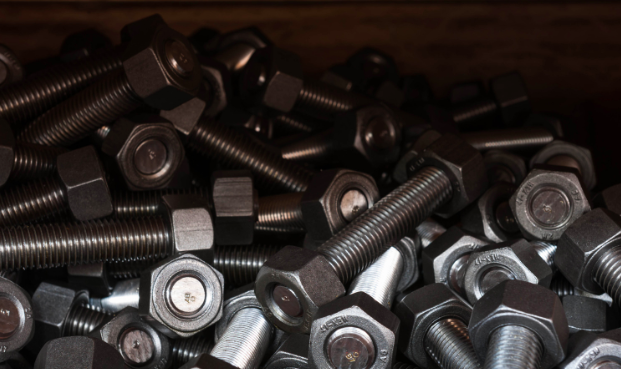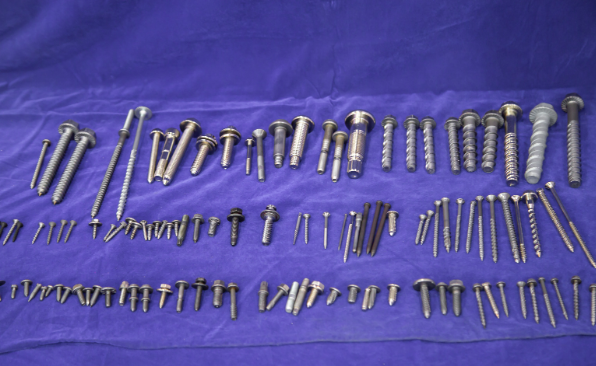Last Updated on November 25, 2022 by mdmtool
A bolt is a type of fastener that is typically used to hold two or more objects together. Bolts are usually made of metal and are inserted through holes in the objects that need to be secured. Screws, on the other hand, are also types of fasteners. However, screws are designed to be inserted into predrilled holes. Screws are typically used to fasten objects together using their threads, whereas bolts usually require a separate nut to be secured.
What Are Bolts?

Bolts are fasteners used to secure two or more pieces of material together. They come in various sizes and designs and can be made from different materials, such as steel, brass, or aluminum. Bolts typically have a head on one end that is designed to be gripped by a wrench, and they also have a threaded shaft that screws into a nut.
What Are Screws?

Screws are also fasteners that secure two or more pieces of material together. However, screws have a pointed tip that allows them to be screwed into materials such as wood or plastic. They also have a threaded shaft that can be screwed into a nut. Screws come in various sizes and designs and can be made from different materials, such as steel, brass, or aluminum.
What’s The Difference Between Bolts And Screws?

- Construction: The main difference between bolts and screws is their construction. Bolts are typically made with a smooth, rounded head designed to be gripped by a wrench. Screws, on the other hand, have a pointed tip that allows them to be screwed into materials.
- Function: Bolts are typically used to combine two or more pieces of wood, metal, or other material. Screws, on the other hand, can be used to fasten a piece of equipment to a wall or floor or to join two sections of pipe together.
- Application: Another difference between bolts and screws is their application. Bolts are typically used in applications where a smooth, rounded head is needed. Screws, on the other hand, are typically used in applications where a pointed tip is required.
- Size: Bolts come in a variety of sizes, from small to large. Screws, on the other hand, are typically smaller than bolts.
- Load Carrying Capability: Bolts are better at carrying shear loads, while screws are better at tension loads. This is because of the difference in how they are tightened.
- Cost: In general, bolts are more expensive than screws. Because they are typically made from higher-quality materials and have a more complex manufacturing process.
Features Of Bolts
- Bolts usually hold two or more pieces of metal together.
- A bolt is tightened by turning it with a wrench.
- Most bolts have a head that sticks out from the surface of the metal, making it easy to grip with a wrench.
- The bolt’s other end is threaded so it can screw into a nut.
- Bolts are often used with washers, which help distribute the load evenly and prevent the bolt from coming loose.
Features Of Screws
- Screws are also used to join two pieces of metal together, but they can also be used in wood and plastics.
- A screw is tightened by turning it with a screwdriver.
- Screws are usually used to hold two or more pieces of metal together.
- Most screws have a head that sticks out from the surface of the metal, making it easy to grip with a wrench or screwdriver.
Different Types Of Bolts

- Anchor bolts: These are used to connect structural and non-structural elements to concrete. They are embedded in concrete during installation, making them highly sturdy and challenging to remove.
- Carriage bolts: These have a smooth, rounded head designed to prevent the bolt from tearing through the material used to fasten. A carriage bolt also has a square section underneath the head that locks into place when the nut is tightened, preventing the bolt from turning.
- Hex bolts: These are bolts with a hexagonal head designed to be used with a wrench. They are available in a variety of lengths and grades.
- Round Head Bolts: Round head bolts are similar to carriage bolts but with rounded heads. These are not as common as other types of bolts.
Different Types Of Screw

- Wood Screw: It is mainly used in wood and has a sharp point. It is also called a drywall screw. It doesn’t split the wood, making it ideal for working with softwoods.
- Lag Screw: It is also called a lag bolt and is mainly used to secure wood to wood. It has a square or hexagonal head.
- Twin fast Screw: It is also known as a double-ended screw and has two pointed ends. It is used to join two pieces of wood together.
- Security Screw: It is designed so that it cannot be removed with a regular screwdriver. It is used in security applications.
FAQs
Is a bolt stronger than a screw?
In general, however, bolts are considered to be stronger than screws. This is because bolts are typically made from harder metals, such as steel, inserted into holes drilled or punched into the material rather than being screwed.
Should I use bolts or screws?
If you need a fastener that can be removed and reused, then a screw is the better choice. However, a bolt is a way to go if you need a more permanent fastener.
Conclusion
The main difference between bolts and screws is that bolts are used to fasten two or more objects together, while screws are used to secure one object to another. Bolts are also bigger and have a head that sticks out, while screws are smaller and have a head that is flush with the surface of the object.





